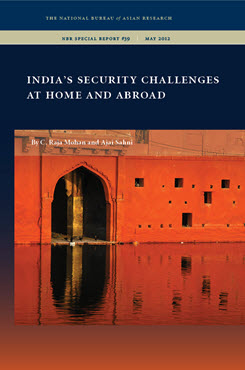India's Internal Security Challenges
In this essay, Ajai Sahni argues that India’s fractious democracy faces numerous internal security challenges and is hobbled by incoherent policy responses and enduring deficits in capacity. The system has, nevertheless, demonstrated extraordinary resilience and has several dramatic successes to its credit.
EXECUTIVE SUMMARY
India’s fractious democracy faces numerous internal security challenges and is hobbled by incoherent policy responses and enduring deficits in capacity. The system has, nevertheless, demonstrated extraordinary resilience and has several dramatic successes to its credit.
MAIN ARGUMENT
India is a study in contrasts, if not contradictions. Extreme poverty and lack of opportunities coexist with rapid economic growth and obscene wealth, creating what commentators have often conceptualized as “two Indias.” These discrepancies, compounded by a wide range of external and internal destabilizers, produce enormous potential for discord as well as a number of enduring internal conflicts.
The state’s responses to existing and emerging challenges of internal security have been marked by a high measure of incoherence, structural infirmities, and a growing crisis of capacities. Despite these deficits and vulnerabilities, India has extraordinary experience in defeating some of the most virulent insurgent and terrorist movements. Unfortunately, the lessons of successful counterinsurgency (CI) and counterterrorism (CT) campaigns have not been transferred efficiently to other theaters.
While rapid economic growth has increased state resources, the policy environment remains crippled by the lack of a strategic culture and foresight. Nevertheless, there is increasing awareness of the urgency of a coherent strategic response. Ultimately, India’s political environment has demonstrated tremendous resilience, justifying the expectation that, in spite of its difficulties, the country will sustain its positive trajectory.
POLICY IMPLICATIONS
- A coherent policy framework is a precondition to the resolution of India’s internal security challenges.
- India’s enduring conflicts must be assessed and countered within a protracted-war paradigm, not the present and dominant emergency-response paradigm.
- A police-led response has been the most successful template in CI-CT campaigns, which are small commanders’ wars. The challenge for policy and generalship is to develop comprehensive response capabilities.
- While extreme inequalities are major sources of tension, the developmental deficits in the country are too great to allow developmental interventions to play any defining role in the resolution of existing and protracted conflicts within a reasonable time frame.


